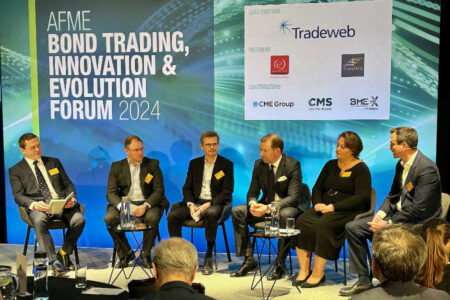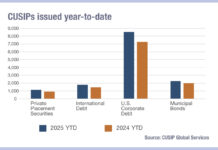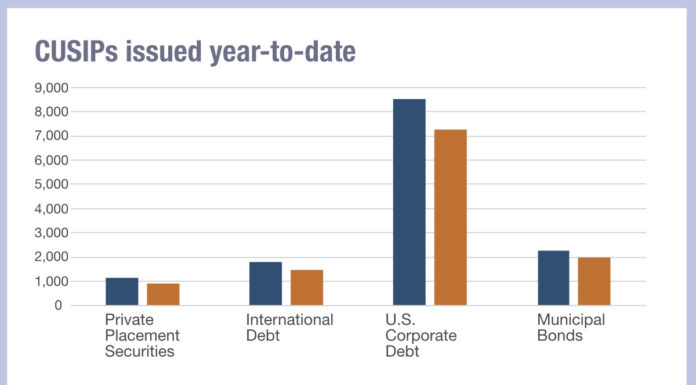At the inaugural AFME Bond Trading, Innovation and Evolution Forum, panellists discussed the future opportunities of the international bond markets. As the discussion drew to a close, conversation touched on trading protocol innovations.

Asked how new trading protocols affect the way Barclays trades in the market, Matthew Coupe, director, global head of cross asset market structure, markets EMEA, Barclays, said that while innovation is “a great thing”, measuring its effectiveness is something else entirely.
“One problem I think we are lacking in the bond market is actually an effective understanding of how to evaluate execution performance. And how do you make sure that the protocol you are selecting or the approach you are looking at, or the risk you are engaging with, is evaluated appropriately?”
Coupe explained that when making any change it needs to be evaluated. Although a consolidated tape is in the offing, and firms have begun to use MiFID data, and there are aggregation tools, “we still do not have a good grasp of what the market change is, what is happening in average trade size of the market, what is happening in terms of toxicity of liquidity and how that plays in”, Coupe said.
“I think we need to be able to answer those questions before we make changes, otherwise you are entering a dark room.”
David Walker, head of fixed income dealing, M&G Investments questioned whether Barclays looks at how people trade with the bank. “If someone was to chop off their ticket, would you give them worse pricing?”
Coupe said the bank would consider a number of factors, “and there is a counterparty element that feeds into that”.
“But critically, it is a partnership basis, the fixed income market, about how you are providing risk and how your counterparty engages with that,” Coupe said. “There are a number of factors regarding the algo, a number of factors regarding the market.”
Coupe added that different composites, or a large RFQ [request for quote] go through the platform, you may see a skew on that platform. “That might lead to questions in terms of how that pricing comes out?”
“But, again, I think we need to make sure we have got the data to be able to answer that.”
©Markets Media Europe 2024
©Markets Media Europe 2025


























